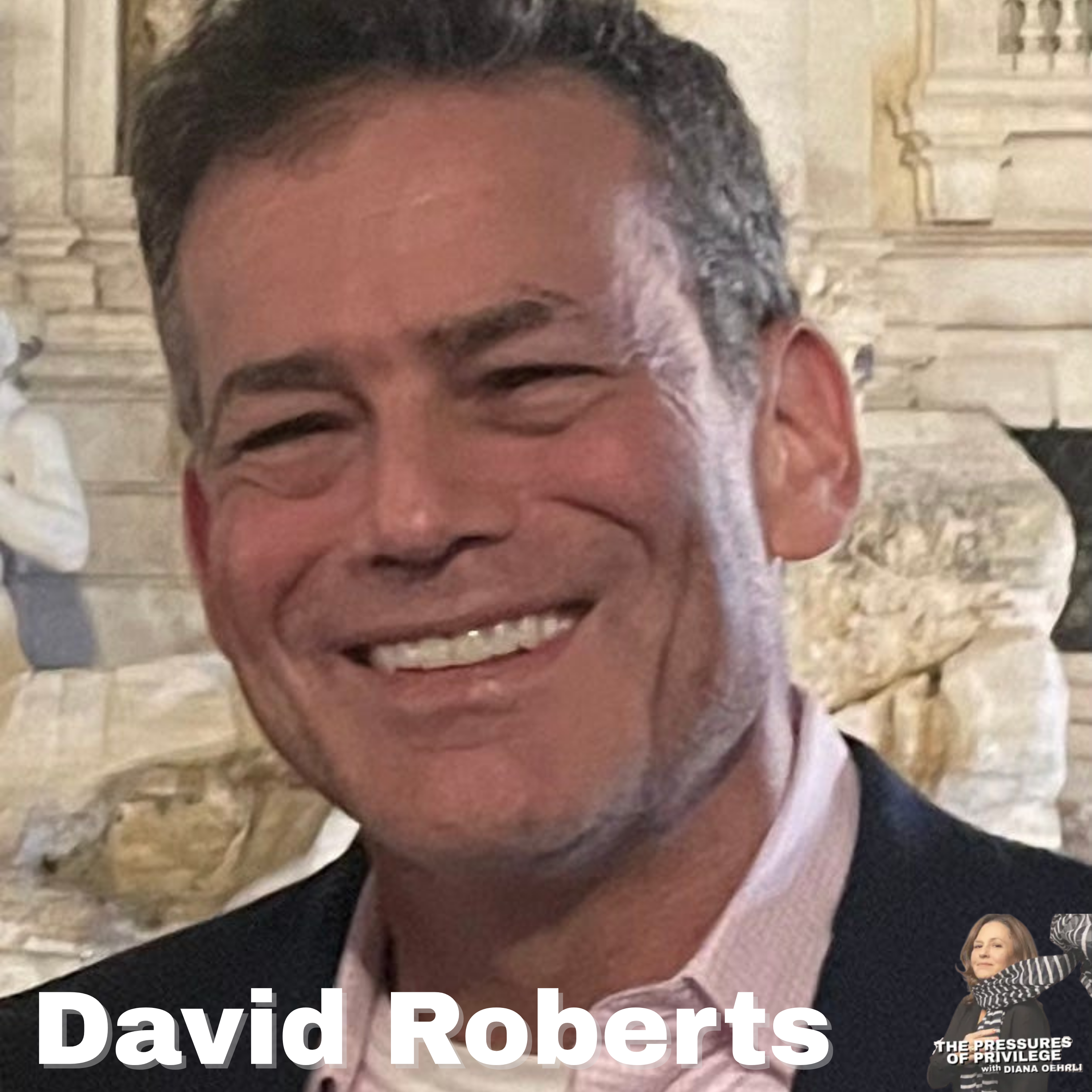Episode Transcript
[00:00:01] Beyond success coaching Renaissance minds to their true calling.
[00:00:06] You have plenty of money. Why are you trying to make more? This question, posed to me recently by someone whose opinion I value, led me to think about human flourishing, virtue and the nature of happiness itself.
[00:00:19] Just yesterday I found myself absorbed in editing a newsletter for our terrible foundation, feeling a surge of excitement as I worked to make it readable, fun and informative. This simple task exemplified what I've come to understand about meaningful work. It's not about the money. It's about the engagement, the contribution, the flourishing, the Question of Purpose why do I get up in the morning? What am I doing with my day that brings meaning? These aren't just philosophical musings, they're practical questions that haunt many privileged professionals. Professionals. Recently my CliftonStrengths assessment revealed that I would excel in coaching that is structured, intellectual and results driven rather than emotionally intensive or charisma based coaching.
[00:01:06] It confirmed what I'd sensed my strengths in listening, writing and thinking could serve others in their journey to find purpose.
[00:01:15] The Weight of Inherited Messages the messaging around work and privilege creates particular challenges for wealthy women.
[00:01:22] Darling, why would you take a job from someone who actually needs it? This well meaning but misguided advice given to a 23 year old female family member reveals our society's complex relationship with privilege and purpose.
[00:01:35] What would Thomas Jefferson have said about this wealthy young woman's desire to work? He understood something profound when he wrote of life, liberty and the pursuit of happiness. To him, happiness wasn't about pleasure or wealth, but about human flourishing through virtue and reasoned moderation. As he wrote to his daughter Martha, a mind always employed is always happy. This is the true secret, the grand recipe for felicity. The idle are the only wretched in a world which furnishes so many employments which are useful and so many which are amusing. It is our own fault if we ever know what Henri is, or if we are ever driven to the miserable resource of gaming which corrupts our dispositions and teaches us a habit of hostility against all mankind.
[00:02:23] I would argue that a mind always employed in meaningful topics is always happy. The word meaningful is key. I've had a busy mind obsessing about things that were not useful, such as a lost romantic relationship.
[00:02:37] And no, endlessly analyzing old texts does not count as productive work. The antidote I found lies in focusing on service to others and being useful, the practical and the philosophical. My own journey with work has been shaped by a chorus of contradictory voices, each seeing work through their own lens. During my time in Switzerland, my lawyer encouraged me to work.
[00:03:01] The government wants everyone working, she explained, pointing out how employment income was taxed more favorably than passive income. My therapist advocated for work from another angle entirely, as a way to break isolation and engage with the world. Yet during divorce proceedings, my ex's lawyer painted a different picture, questioning my newspaper career as purely selfish, suggesting the child care costs outweighed the benefits. The lawyers saw only the financial equations, one seeking tax efficiency, the other calculating child care costs against income. But my therapist glimpsed something deeper the vital role of meaningful engagement in a well lived life.
[00:03:40] This insight aligned with what I was learning in 12 step recovery that happiness comes through service to others.
[00:03:47] My recent Strengths Finder test added another layer of understanding, highlighting responsibility as my top strength, both a gift and a potential burden as I sometimes take on too much and then resent it. Together, these perspectives reveal a fundamental truth. A meaningful life requires more than financial security. It needs purpose, connection and contribution.
[00:04:11] The Catastrophic Thinker's Perspective I admit to having a catastrophic mind. Living solely on passive income feels risky to me. Financial systems can falter, markets can crash, and skills can atrophy.
[00:04:25] I've witnessed too many divorce cases where individuals, both men and women, found themselves struggling after years of dependency. The women were often financially inept, while the men couldn't manage basic daily living tasks like cooking and organizing.
[00:04:41] I once watched a grown man struggle to figure out how to use a can opener. It was like watching a caveman discover fire, but with more cursing beyond traditional metrics. As the famous swordsman Miyamoto Musashi wisely noted from one thing no 10,000 things, work provides not just income but invaluable experience, transferable skills and pattern recognition that service in all aspects of life. It connects us to something greater than ourselves and contributes to society as a whole. Our society tends to overvalue monetary compensation while undervaluing social impact.
[00:05:19] As Catherine Marcel pointedly asks in who Cooked Adam Smith's Dinner? Economists have historically failed to account for crucial unpaid work in their calculations of societal value.
[00:05:34] It's crucial to recognize often overlooked forms of work such as household labor and volunteering. The Zen Buddhist saying after enlightenment, chop wood and carry water captures this perfectly, reminding us of the dignity in everyday tasks.
[00:05:48] In my coaching practice, I found that money represents more than compensation. It's an exchange of energy that ensures clients have skin in the game. Yet work's true value extends far beyond monetary rewards. It's about self transcendence, moving beyond personal gain to serve others.
[00:06:06] The Renaissance Mind in an AI age as someone who has navigated multiple careers from gardening to journalism, banking to coaching, I've often worried about placing the ladder against the wrong tree. Yet this diverse background has become an asset in an age of artificial intelligence. While AI transforms traditional career paths, it can't replace the human element. Our capacities to connect or read nonverbal cues work side by side and use our senses. I'm encouraging my kids to continue working in restaurants and on their goals of growing food and becoming professional musicians. In the end, we've learned that essential services are where it's at.
[00:06:46] White collar workers are done for. So unless your dream job is professional Zoom attendee, it might be time to get your hands dirty. And honestly, who wants to spend their entire day in front of a screen? Unless, of course, you're a hacker with a dramatic backstory solving crimes from your dimly lit apartment. But let's be real. Most of us aren't A holistic approach to life's work According to Bill Burnett and Dave Evans Framework in designing your life, people work for three primary reasons money, impact, and expression.
[00:07:16] When financial security is achieved, the focus naturally shifts to impact and expression. Yet these can be the most challenging to pursue authentically.
[00:07:25] Finding meaningful work requires Acknowledge all forms of valuable contribution. Examine inherited beliefs about success Align work with core values and strengths Understand work as a means of connection Embrace the wisdom in everyday tasks. The path forward the pressure of privilege need not be paralyzing. As our Founding Fathers understood, much is expected from those to whom much is given. By embracing our renaissance nature, our multiple interests and capabilities, we can create meaningful work that serves both ourselves and others. As Guy Kawasaki suggests, creating meaning in work involves improving others quality of life, preserving something good, or righting a wrong. Through this lens, work becomes not just a way to earn or achieve, but a path to virtue, wisdom, and true happiness.
[00:08:14] Eudaimonia in its fullest sense, the question isn't whether we need to work, it's how we can work in ways that honor both our privileges and our potential while contributing to the greater good.






